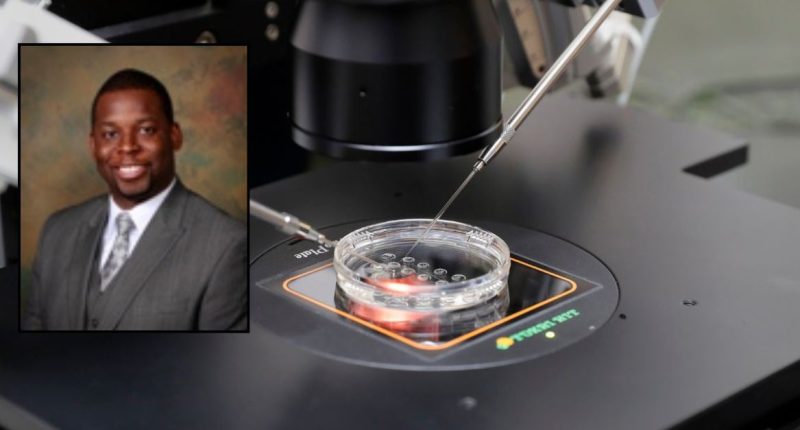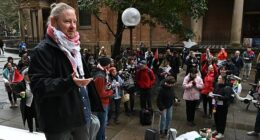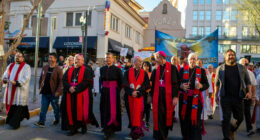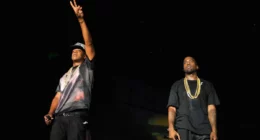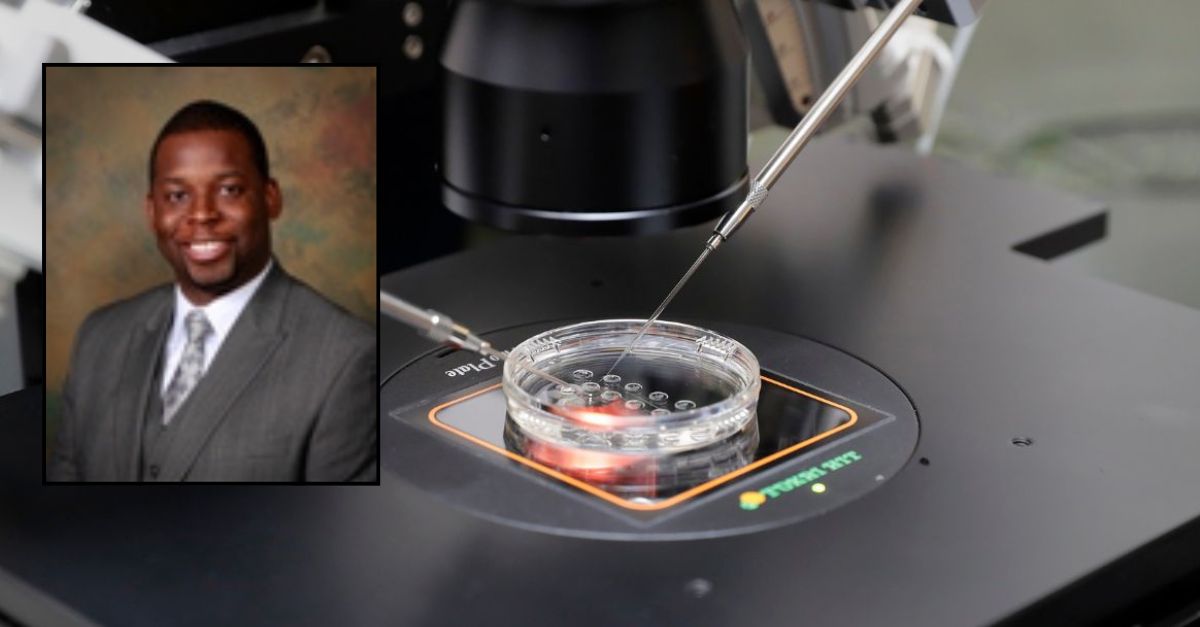
Main: A small petri dish holding several embryos is positioned onto a microscope stand used to extract cells from each embryo to test for viability at the Aspire Houston Fertility Institute in vitro fertilization lab Tuesday, Feb. 27, 2024, in Houston (AP Photo/Michael Wyke). Inset: Fairfax County Circuit Court Judge Dontae Lamont Bugg (image via Fairfax Bar Association).
A northern Virginia judge has ruled that human embryos are not property, despite a court having previously ruled that embryos could be considered divisible “goods or chattel” based on 19th century slave law.
The ruling means that a divorced couple still does not have a final answer as to whether one party can use the embryos to have more children over the objection of the other.
During their third year of marriage in 2015, Honeyhline Heidemann and Jason Heidemann began the process of in vitro fertilization (IVF) at a Falls Church, Virginia, clinic. They underwent three cycles of IVF and ultimately created four embryos. Two of the embryos were implanted to achieve a pregnancy, which resulted in the parties having one child together. The remaining two embryos remained cryopreserved at the clinic since 2015.
The Heidemanns separated in September 2017. The following January, they entered into a property settlement agreement (PSA) which became part of their final divorce decree that November. In their PSA, the couple agreed that neither of them would remove the two embryos from the clinic and that they would share the cost of preserving the embryos equally.
Several months after the couple was divorced, Honeyhline Heidemann requested her former husband’s consent to use the embryos to have more children. Jason Heidemann refused on grounds that it would violate his privacy and personal liberty. Honeyhline Heidemann testified the embryos were her last chance to conceive another biological child after having undergone a cancer treatment.
In July 2019, Honeyhline Heidemann reopened the divorce proceeding and filed a motion through which she sought sole possession of the embryos. Since then, the couple has been involved in ongoing litigation over ownership of the embryos. The legal claim is for “partition,” which is the mechanism for co-owners in property to establish rights over that property.
In 2023, the case proceeded before Fairfax County Judge Richard E. Gardiner, who decided — quite controversially — that the embryos could indeed be considered property or “chattel” under 19th century state law that predated the abolition of slavery.
On March 7, Fairfax Circuit Court Judge Dontaè L. Bugg wrote that he was “not persuaded” that human embryos are included in the definition of “goods or chattels” under state property law.
Bugg wrote in an opinion letter that Virginia lawmakers have sought to “excise a lawless blight” from the state’s legal code since 1865, and that “human beings, and by extension embryos they have created, should not as a matter of legislative policy be subject to partition.” Bugg dismissed the partition claim, opening the case up to further litigation utilizing other legal theories.
The legal status of cryogenically preserved embryos erupted as a topic in national media after the Alabama Supreme Court ruled that frozen embryos counted as “children” for purposes of a wrongful-death lawsuit. The unprecedented 2024 ruling not only allowed a wrongful-death lawsuit to be brought by a couple whose embryos were destroyed when they were dropped onto the floor of an IVF clinic, but also had implications for the criminal prosecution of abortions in the state.
You can read the full ruling here.
Love true crime? Sign up for our newsletter, The Law&Crime Docket, to get the latest real-life crime stories delivered right to your inbox.
